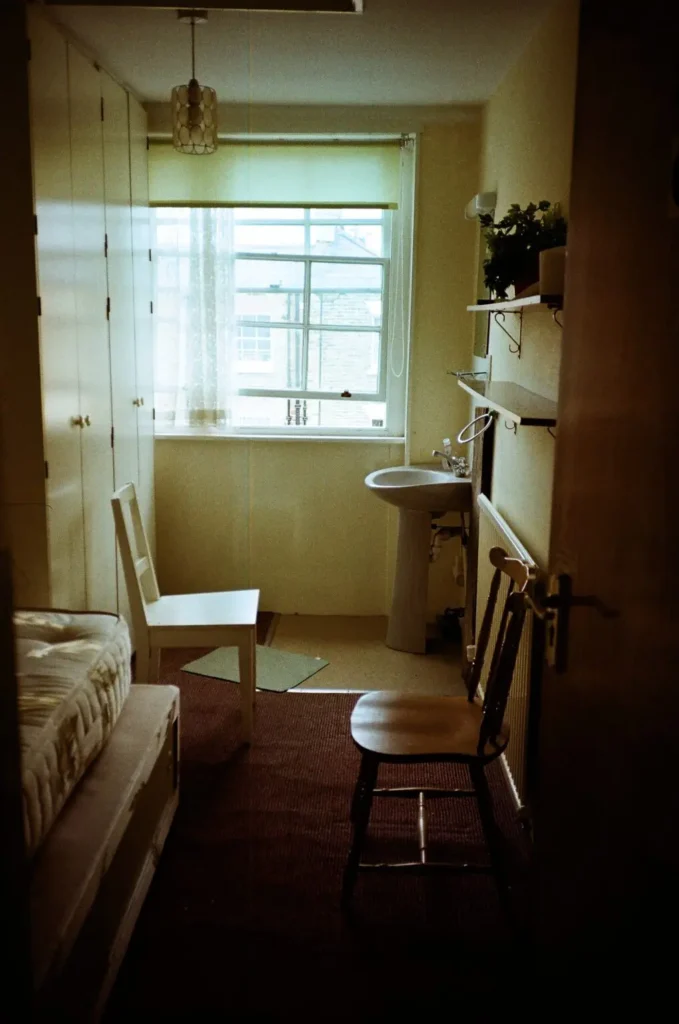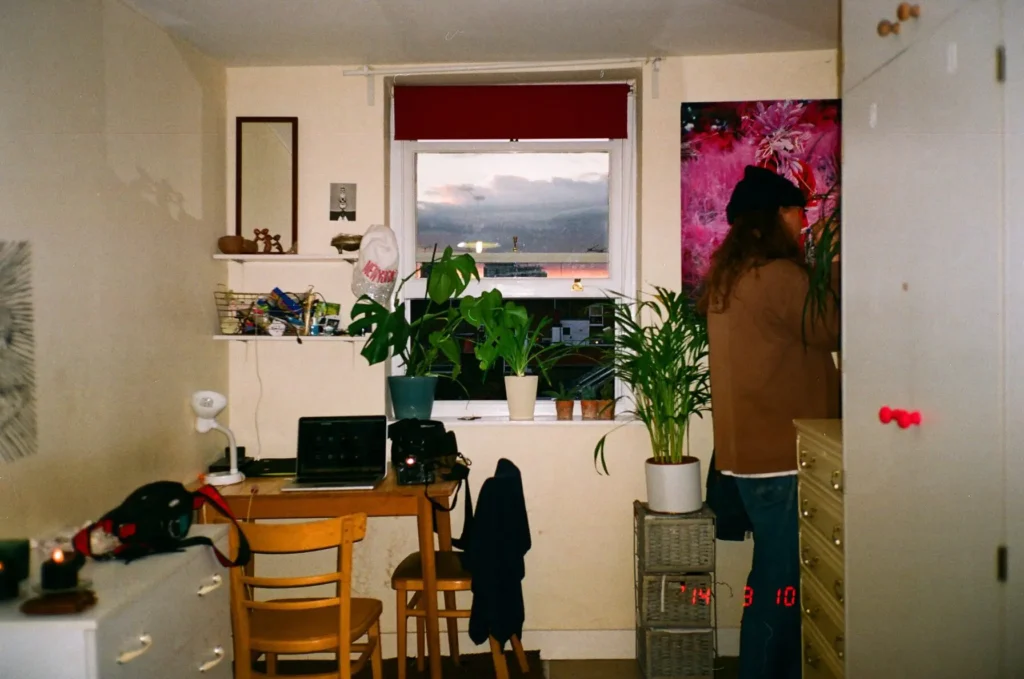Fancy living in a school? What about a warehouse, pub, or old office building? These are the weird and wonderful options available to become your future home if you decide to try out life as a property guardian. You might end up making your morning cuppa in an industrial-sized kitchen, living with several dozen housemates, and sleeping next to old bunsen burners in a former science classroom, but what guardianship properties might lack in the old health and safety department, they make up for in cheap rent in some of the most desirable locations in the country. And you’ll definitely come away with a good story.
I first became interested in property guardianships when I was deep in a Phoebe Waller-Bridge obsession and stumbled upon Crashing, an ensemble comedy she created about a bunch of quirky twenty-somethings living in a disused hospital in exchange for cheap rent in London. Since finding out this was a thing people could actually do, I’ve always wondered if the lifestyle would be as fun, chaotic, and sociable as it looks on screen.
“Yes! It really did feel like a small community,” says a friend who spent their early twenties as a guardian. They lived in an ex-retirement home in Brighton with 32 other people, including
“a driving instructor who taught people in the house to pass their tests, a chef who always made cakes for everyone, and several drum n bass DJs – who were not quite as useful,” they joked.
Even though there were a lot of people under one roof, they all knew each other really well and felt comfortable hanging out together. “There were a lot of inter-house relationships and affairs that did get very, very messy!” Despite the chaos, one huge upside of living with so many people is how many more opportunities there are to form connections and lifelong friendships.
If you ask the government, an estimated 5,000–7,000 people live as property guardians across the UK (if you ask the BBC, it’s closer to 10,000). Living in weird and wonderful buildings allows guardians to live in a more desirable (read: expensive) area at a lower cost in exchange for taking care of the property and, ostensibly, guarding it against vandalism and squatters. The reason exact numbers aren’t known is because it’s an unregulated industry that’s only growing in popularity as more people add their names to waiting lists and more buildings are being turned into guardianships – although not every property is as out-there as a church or fire station.
One guy I spoke to was a guardian in an old townhouse in Wapping that used to belong to a “mad old lady” who was well known in the area before she died. “There were about 5 of us in this big house,” he says, acknowledging it’s a whole different kettle of fish from a property that was never designed to be lived in. A friend of his used to live as a property guardian in a former jobcentre. “That place was rogue!” Comparatively, landing a townhouse near the Thames as your guardianship is pretty lucky. “It was perfect at the time – living on my own, in a great area, with the freedom to do what I wanted with the space.” It’s swings and roundabouts: guardianship companies aren’t held to the same expectations around building maintenance and management as your average landlord, and in exchange you can reasonably expect a little more freedom as a tenant. Plus, you’ll pay around 30% less than the average rent prices for their area. “I definitely miss how cheap it was!”
For my friend, the only negative part about guardianship (apart from living with 3 drum n bass DJs, that is), was dealing with the company who ran their building. “They didn’t really care much for responding to maintenance requests, so the building was without central heating and hot water for the first 2 months I lived there.” You might assume that having 32 flatmates on your side would make the company and the council (who owned the building) easier to deal with, but one person going rogue meant they were all implicated in the fallout. “One person decided that they didn’t like the guardianship anymore so they were arguing with the company and the rest of us got caught in the middle. One thing led to another and all of us ended up talking to lawyers, news outlets, local councillors, ACORN – even protesting outside the town hall.” They were eventually told to leave with just 3 days notice, a situation so stressful they ended up in A&E with stress-aggravated tonsillitis that caused their throat to swell up.
They moved into a regular flat after that, but they definitely don’t regret their time as a guardian, explaining that the best part of the whole experience was meeting all the people they lived with. “It was a collective of people from completely different backgrounds, with different beliefs and priorities.” The living situation provided endless opportunities for socialising. They tell me about the parties they all used to throw, the regular group dinner parties, and the events they put on, such as an Among Us–themed evening with various tasks hidden around the building. “You can’t easily find that kind of community after you leave education. I would call it a uniquely altering situation. I don’t think anyone living there left as exactly the same person they were when they moved in.”
Besides, what are your early twenties for, if not living with a bunch of total strangers you’d never cross paths with otherwise, collecting stories for the future? “When one of the residents, who was this weird, gothic witch girl, moved out, we found a decaying fox skull with a crystal stuck in its eye socket left in her room.” You couldn’t make this stuff up (unless maybe you’re Phoebe Waller-Bridge).








